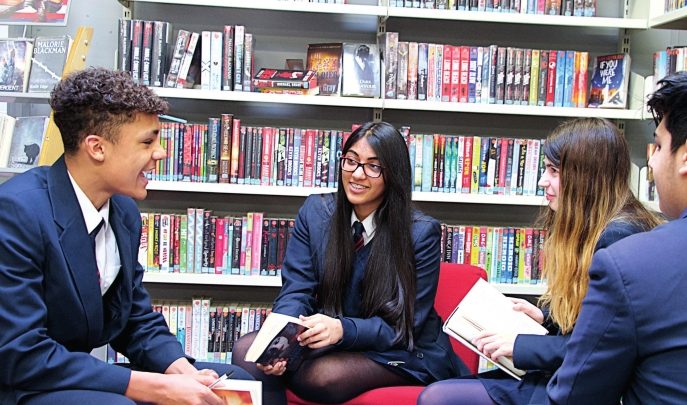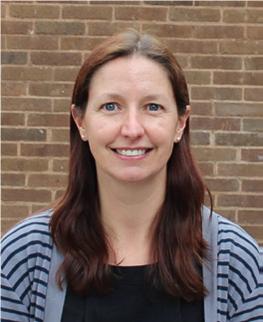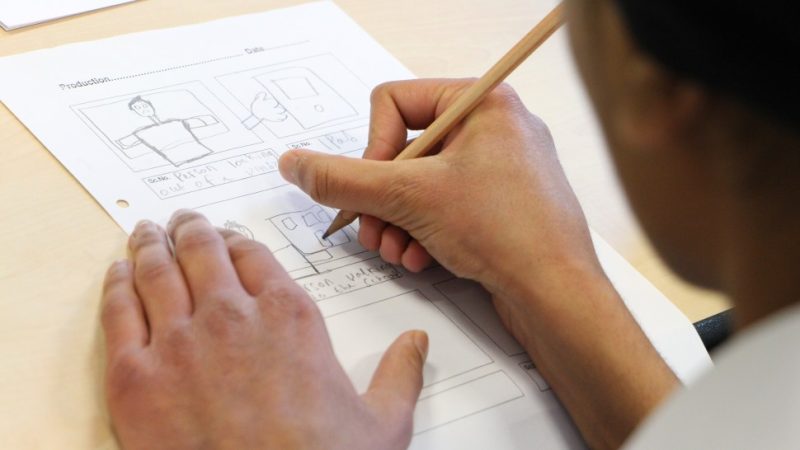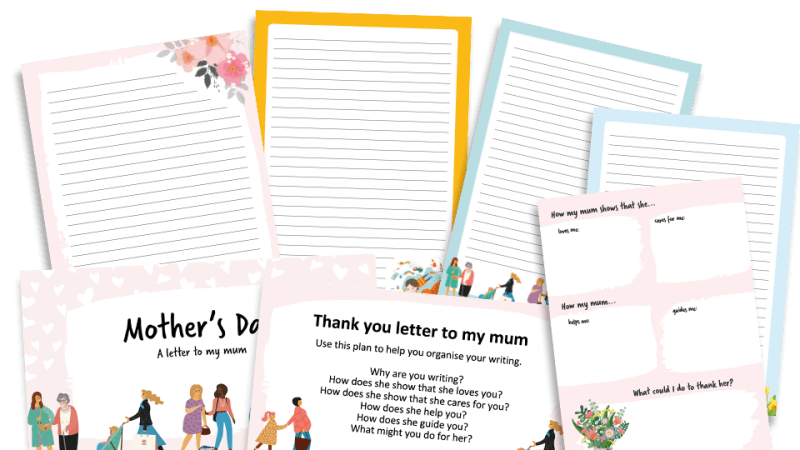How Technology Is Driving Inclusivity At Priestnall School, Stockport

At Priestnall School in Stockport, technology plays a big part in ensuring that every student is supported to succeed, says Lucy Collins

- by Lucy Collins

With over 1,200 students aged 11-16, Priestnall School is located in Stockport, Greater Manchester. Priestnall has a truly comprehensive intake which serves the community in which it is situated. As an inclusive school we have a range of students with differing needs and are therefore constantly looking to improve provision, especially with regard to the use of technology.
As we strive to move with the times and ensure students are exposed to as much modern technology as possible, we share a firm belief that investment in technology and equipment will best prepare our students for their future careers.
We have approximately 300 student computers based in nine ICT rooms around school, with a further 130 staff computers. In the last few years Priestnall School has also invested in 150 iPads for student use, divided equally between the five school colleges. Teachers can reserve the iPads for lessons and use them with students to research topics, film documentaries or for controlled assessments, to mention just a few of their uses. We have also invested in some external keyboards that are compatible with the iPads – these seem to be a particularly big hit with some of our SEND students, who find that they can type much quicker than they can write; in addition to being a popular and cost-effective solution.
Sure solutions
An invaluable piece of software that we use at Priestnall School is the Read&Write programme which is installed on every single machine. Developed by Texthelp, this software is an assistive learning solution for people with learning difficulties, dyslexia or visual impairments, as well as being extremely helpful for people learning English as an additional language. This software is used by millions of people every day in schools and in the workplace. Many of our SEND students use this software in a classroom or exam environment to help with their comprehension of text on screen. The student can choose the pitch, speed and volume of the voice as well as selecting a suitable accent from the many options built into the software. They can even customise the toolbar to suit them. The student then prompts the software to read the text to them or to read their written work back to them to ensure it makes sense. Without a doubt, this has been an invaluable software tool for our school.
We’ve also invested in a voice software programme called Dragon, which types as you speak, and over the coming months we will be introducing this to more of our SEND students, who can often struggle to transfer their ideas to paper easily. Prior to the recent GCSE exams we also purchased some Exam Reader Pens – a long-term investment which will reduce the cost of live readers in exams. The Reader Pens are approved by JCQ and other exam boards and no special access arrangement is required for their use in exams. We have found them invaluable in exams, especially for those students who do not qualify for a reader. The student can use the pen independently to scan the printed word(s) and the text is then read back to them via headphones. We also have Reader Pens for classroom use which include a built-in Collins Dictionary – a feature which, for obvious reasons, does not come with the Exam Reader Pen. More and more of our students are using these pens in the classroom and for formal exams and assessments. The students like the fact that they are easy to use, are very subtle and they don’t draw attention to themselves as much as they would with a live reader sat next to them.
Equal opportunties
The developing use of technology has been very important for us; having 66 of our current cohort accessing one of, or a combination of 12 different types of access arrangements, we need as much assistance as we can to ensure no student is disadvantaged as a result of their specific SEN or needs. The use of Lucid EXACT to support screening and application of access arrangements has assisted massively, especially as for each of this year’s 66 applications we estimate that it takes approximately six hours (on average) per student to assess, and apply!
To conclude, Priestnall School is proud of the fact that all our SEND students are given the same opportunities to learn as everyone else and, perhaps more importantly, have the same opportunities with regard to assessment and examinations. We are trying hard to keep up to speed with new technologies emerging in the market and ensuring, where possible, that we provide our students with the technology and equipment to progress at the same pace as everyone else. Knowing that our students can work independently before they leave our school is a huge challenge, but one that we are more than happy to take on; especially as the core values of Priestnall School are ‘educating for life’.
Student voices
“It’s nice to know that there are resources available for me to use because I don’t have the same learning capabilities as most. I have been shown how to use the Read&Write Gold programme so that I can listen to text being read out to me – this allows me to digest the information better and gain a clearer understanding of the text. I also like the Reader Pens as I can scroll over words or sentences and listen to it being read back to me rather than having to read it myself. The voice assistive Dragon software is also really useful – I can speak into a microphone and the computer will type what I’m saying, which means the text is much more fluid than if I were writing it myself. I think the provision of technology at Priestnall School is really good for all students, but the assistive technology is particularly helpful for those with specific learning difficulties. The teachers ensure that we all receive the best possible support which is tailored to our own individual needs.” Student, Year 10, dyslexic
“Curriculum support has provided me with an iPad and external keyboard which means that I can type all my lesson notes, enlarge them and print them out so that I can see them better. Without access to this kind of technology I would really struggle to read my notes, so I’m very grateful that this provision has been made for me.” Student, Year 7, visually impaired
About the author
Lucy Collins is an exams intervention and access assistant at Priestnall School, Stockport










